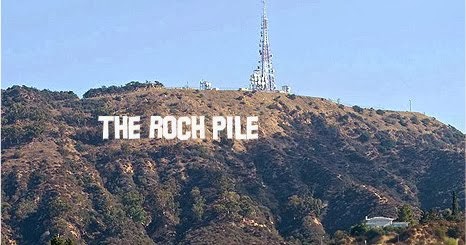 this item on SF Gate:
this item on SF Gate:"Bay Area Latino radio station won't stop playing Nelly's 'Hot in Herre'"
"Bay Area radio station Latino Mix, 105.7 (Santa Clara) and 100.7 (San Rafael), and has had a Nelly hit from 2002 on repeat since around 3 p.m. Friday."
Twitter is all abuzz (Or is that Buzz is all a'twitter?). Looks like the hashtag du jour is #nelly1057
This immediately brought back memories of the time that legendary KHJ DJ Robert W. Morgan infamously played Donny Osmond's must-inject-insulin-now "Puppy Love" for about 1.5 hours straight.
The L.A. Times' Steve Harvey reminisced about that incident 32 years later:
"Police visited the Melrose Avenue studios of KHJ in Hollywood 'after receiving several phone calls from listeners who thought something was wrong because morning man Robert W. Morgan played Donny Osmond's 'Puppy Love' over and over for an hour and a half,' (Historian Jim) Hawthorne wrote.
"'The fear was that the station had been taken over by crazed fans of the 14-year-old singer'."
 I listened in fascination for most of those 90 minutes even though "Puppy Love" was probably the worst pop single of all time at that time, which is why Robert W. Morgan played it.
I listened in fascination for most of those 90 minutes even though "Puppy Love" was probably the worst pop single of all time at that time, which is why Robert W. Morgan played it."(Morgan) explained he "had grown so weary of the 'teeny boppers' requesting the song, he decided to play it repeatedly until the listeners tired of hearing it." Good Morgan!"I won't be listening to "Hot in Herre" -- largely in fear because I don't want to find out what "Herre" means.
In reading Harvey's piece, however, I noticed that the "Puppy Love" incident occurred on March 15, 1972. Today is also March 15.
According to the SFGate blog, 105.7 may be pulling out the obnoxious stops because it is relaunching from "Latino Mix" to "Hot 105.7."
So the timing of it is either a remarkable coincidence, or a fabulous nod to radio history. I like to think it's the latter.





